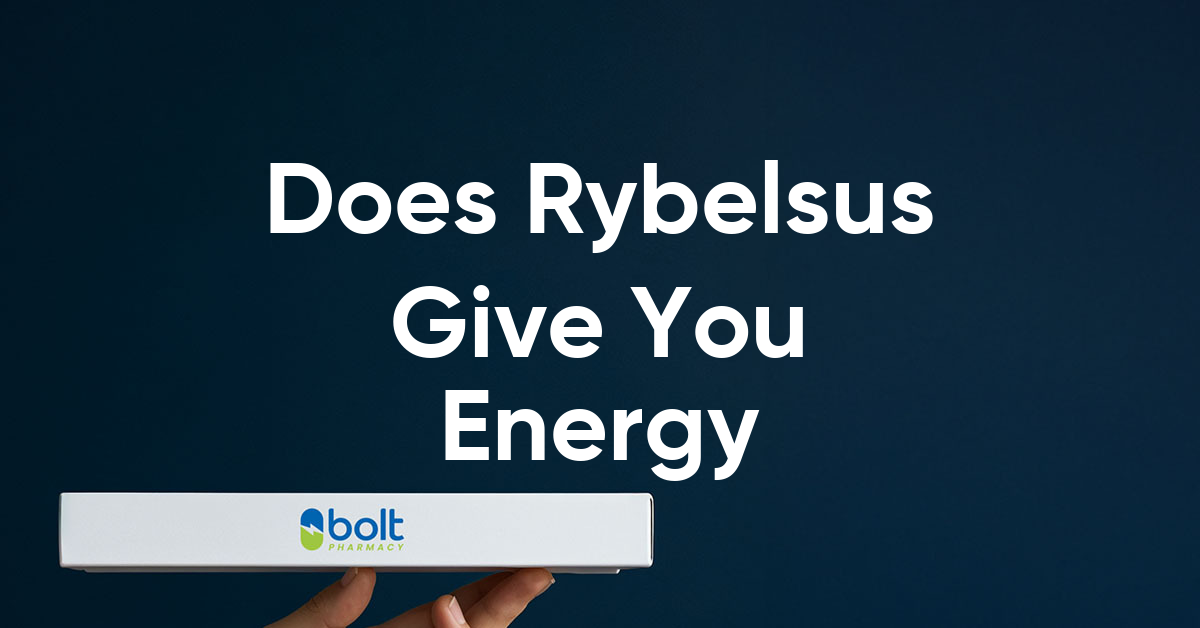Rybelsus (semaglutide) is an oral GLP-1 receptor agonist licensed in the UK for treating type 2 diabetes mellitus in adults. Whilst it does not directly provide energy like a stimulant, some patients report feeling more energetic after starting treatment. This may be linked to improved blood glucose stability, weight loss, and better overall diabetes control. However, side effects such as nausea or fatigue can also occur, particularly during initial treatment. Understanding how Rybelsus works and its potential effects on daily energy levels can help patients and clinicians optimise diabetes management.
Summary: Rybelsus does not directly provide energy but may indirectly improve energy levels through better blood glucose control and weight loss in some patients with type 2 diabetes.
- Rybelsus (semaglutide) is a GLP-1 receptor agonist licensed in the UK for type 2 diabetes mellitus treatment.
- It works by stimulating glucose-dependent insulin secretion, suppressing glucagon release, and slowing gastric emptying.
- Improved glycaemic control and weight loss may lead to subjective increases in energy for some patients.
- Common side effects include nausea, vomiting, diarrhoea, and decreased appetite, which may initially reduce energy levels.
- Patients should contact their GP if experiencing persistent fatigue, severe gastrointestinal symptoms, hypoglycaemia, or signs of serious adverse effects such as pancreatitis.
Table of Contents
What Is Rybelsus and How Does It Work?
Rybelsus (semaglutide) is an oral medication licensed in the UK for the treatment of type 2 diabetes mellitus in adults. It is indicated as monotherapy when metformin is inappropriate, or as add-on therapy with other diabetes medications. It belongs to a class of drugs known as glucagon-like peptide-1 (GLP-1) receptor agonists and works alongside diet and exercise modifications to improve glycaemic control.
The mechanism of action of Rybelsus centres on mimicking the naturally occurring hormone GLP-1, which is released by the gut in response to food intake. By binding to GLP-1 receptors, semaglutide stimulates insulin secretion from pancreatic beta cells in a glucose-dependent manner—meaning it only works when blood glucose levels are elevated. This reduces the risk of hypoglycaemia compared to some other diabetes medications. Additionally, Rybelsus suppresses glucagon release, a hormone that raises blood sugar, and slows gastric emptying, which helps moderate post-meal glucose spikes.
Beyond glucose regulation, Rybelsus influences appetite centres in the brain, leading to reduced hunger and increased satiety. This often results in weight loss, which is a beneficial secondary effect for many patients with type 2 diabetes. The medication is available in three tablet strengths (3 mg, 7 mg, and 14 mg) and must be taken once daily in the morning on an empty stomach with up to 120 ml of water. The tablet should be swallowed whole (not split, crushed or chewed) and you must wait at least 30 minutes before consuming any food, drink, or other oral medicines.
Treatment typically starts with 3 mg daily for 30 days, then increases to 7 mg daily. If needed, the dose may be increased to 14 mg after at least 30 days on the 7 mg dose.
It is important to note that Rybelsus does not directly provide energy in the way stimulants do. It does not contain caffeine or other energising compounds. However, its effects on blood glucose stability and weight may indirectly influence how patients feel day-to-day, which we explore in the following sections.
Why Some People Feel More Energetic on Rybelsus
While Rybelsus is not designed to boost energy levels, some patients report feeling more energetic or less fatigued after starting treatment. There is no official link establishing Rybelsus as an energy-enhancing medication, but several indirect mechanisms may explain these subjective experiences.
Improved glycaemic control is the most likely contributor. Poorly controlled type 2 diabetes often causes fluctuating blood glucose levels—both hyperglycaemia (high blood sugar) and hypoglycaemia (low blood sugar)—which can lead to fatigue, brain fog, and general malaise. By stabilising blood glucose within a healthier range, Rybelsus may help patients feel more alert and physically capable. Consistent energy levels throughout the day, without the peaks and troughs associated with erratic glucose, can significantly improve quality of life.
Weight loss is another factor. Many patients taking Rybelsus may experience gradual, sustained weight reduction due to decreased appetite and caloric intake. Excess weight, particularly in the context of type 2 diabetes, is often associated with increased fatigue and reduced physical stamina. As patients lose weight, they may find daily activities easier and overall energy potentially enhanced.
Additionally, better diabetes management may lead to improved mood and motivation. Living with uncontrolled diabetes can be physically and emotionally draining. When patients see tangible improvements in their HbA1c levels, weight, and overall health markers, this psychological boost may translate into feeling more energised and engaged in daily life.
It is essential to recognise that these effects are highly individual. Not all patients will experience increased energy, and some may initially feel more tired as their body adjusts to the medication, particularly if they experience gastrointestinal side effects or reduced food intake during the early treatment phase.
Common Side Effects of Rybelsus That May Affect Energy
Like all medications, Rybelsus can cause side effects, some of which may negatively impact energy levels , particularly during the initial weeks of treatment. Understanding these effects can help patients and healthcare professionals distinguish between normal adjustment periods and symptoms requiring medical attention.
Gastrointestinal side effects are very common and include:
-
Nausea
-
Vomiting
-
Diarrhoea
-
Abdominal pain
-
Decreased appetite
These symptoms are usually mild to moderate and tend to diminish over time as the body adapts to the medication. The gradual dose escalation schedule helps mitigate these effects. However, persistent nausea or vomiting can lead to reduced food and fluid intake, potentially causing dehydration and fatigue. Patients experiencing significant gastrointestinal upset should ensure adequate hydration and consider eating smaller, more frequent meals.
Hypoglycaemia (low blood sugar) is uncommon with Rybelsus alone but can occur when it is used in combination with other diabetes medications such as sulphonylureas or insulin. Doses of these medications may need reduction to limit hypoglycaemia risk. Symptoms of hypoglycaemia include trembling, sweating, confusion, dizziness, and profound fatigue. Patients should be educated on recognising and managing low blood sugar episodes.
Some patients report headaches or dizziness during the initial treatment phase, which may contribute to feelings of tiredness or reduced concentration. These symptoms typically resolve within a few weeks.
Rybelsus has been associated with more serious adverse effects that require medical attention, including:
-
Diabetic retinopathy complications, particularly in those with pre-existing retinopathy
-
Pancreatitis (inflammation of the pancreas), presenting with severe abdominal pain radiating to the back, nausea, and vomiting
-
Gallbladder disease (cholelithiasis/cholecystitis)
-
Dehydration and acute kidney injury
-
Hypersensitivity reactions
Rodent studies have shown thyroid C-cell tumours with GLP-1 receptor agonists, though the relevance to humans is unknown. Seek medical advice for any neck lump, hoarseness, difficulty swallowing or breathing.
If side effects are significantly affecting daily functioning or energy levels, patients should not discontinue the medication without consulting their GP or diabetes specialist.
When to Speak to Your GP About Rybelsus and Fatigue
While some fluctuation in energy levels is normal when starting Rybelsus, certain symptoms warrant prompt medical review. Patients should contact their GP or diabetes care team if they experience:
-
Persistent or worsening fatigue that does not improve after the first few weeks of treatment
-
Severe nausea or vomiting preventing adequate food or fluid intake
-
Signs of dehydration (dark urine, dizziness, dry mouth, reduced urination)
-
Symptoms of hypoglycaemia, especially if recurrent or severe
-
Unexplained weight loss beyond what is expected or desired
-
Severe abdominal pain, particularly if radiating to the back (possible pancreatitis)
-
Sudden visual changes (possible retinopathy complications)
-
Right upper quadrant pain, fever or jaundice (possible gallbladder disease)
-
Markedly reduced urination (possible acute kidney injury)
-
Signs of severe allergic reaction such as swelling, wheeze, or rash (call 999 if severe)
As part of routine diabetes care, patients on Rybelsus will have regular monitoring of HbA1c, weight, and renal function. Those with pre-existing retinopathy should attend regular diabetic eye screening appointments.
Patients should also discuss their overall diabetes management plan with their healthcare team. Fatigue may be multifactorial, related not only to medication but also to suboptimal glycaemic control, other comorbidities (such as thyroid disorders, anaemia, or depression), or lifestyle factors including poor sleep, inadequate nutrition, or lack of physical activity.
If you experience concerning mood changes while taking Rybelsus, discuss these with your clinician, as they may need to evaluate whether these are related to your overall health, diabetes control, or other factors.
It is important to have an open dialogue with your GP about how Rybelsus is affecting your daily life. Dose adjustments, additional supportive treatments, or switching to an alternative diabetes medication may be appropriate depending on individual circumstances. Never stop taking Rybelsus without medical advice, as abrupt discontinuation can lead to worsening glycaemic control. Your healthcare team can work with you to optimise treatment while minimising side effects.
Suspected side effects can be reported via the MHRA Yellow Card scheme (yellowcard.mhra.gov.uk or via the Yellow Card app).
Frequently Asked Questions
Can Rybelsus make you feel more energetic?
Rybelsus does not directly boost energy, but some patients report feeling more energetic due to improved blood glucose stability and weight loss. Individual experiences vary, and some may initially feel more tired due to side effects.
What are the most common side effects of Rybelsus that affect energy?
Common side effects include nausea, vomiting, diarrhoea, and decreased appetite, which can lead to reduced food intake, dehydration, and fatigue. These typically improve as the body adjusts to treatment.
When should I contact my GP about fatigue whilst taking Rybelsus?
Contact your GP if you experience persistent or worsening fatigue, severe nausea or vomiting, signs of dehydration, recurrent hypoglycaemia, or severe abdominal pain. Never stop Rybelsus without medical advice.
The health-related content published on this site is based on credible scientific sources and is periodically reviewed to ensure accuracy and relevance. Although we aim to reflect the most current medical knowledge, the material is meant for general education and awareness only.
The information on this site is not a substitute for professional medical advice. For any health concerns, please speak with a qualified medical professional. By using this information, you acknowledge responsibility for any decisions made and understand we are not liable for any consequences that may result.
Heading 1
Heading 2
Heading 3
Heading 4
Heading 5
Heading 6
Lorem ipsum dolor sit amet, consectetur adipiscing elit, sed do eiusmod tempor incididunt ut labore et dolore magna aliqua. Ut enim ad minim veniam, quis nostrud exercitation ullamco laboris nisi ut aliquip ex ea commodo consequat. Duis aute irure dolor in reprehenderit in voluptate velit esse cillum dolore eu fugiat nulla pariatur.
Block quote
Ordered list
- Item 1
- Item 2
- Item 3
Unordered list
- Item A
- Item B
- Item C
Bold text
Emphasis
Superscript
Subscript












